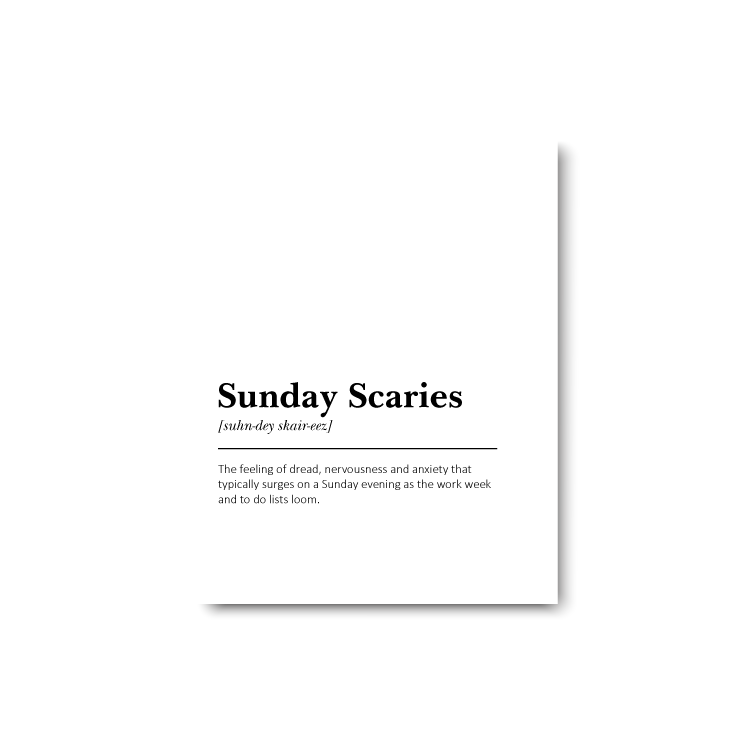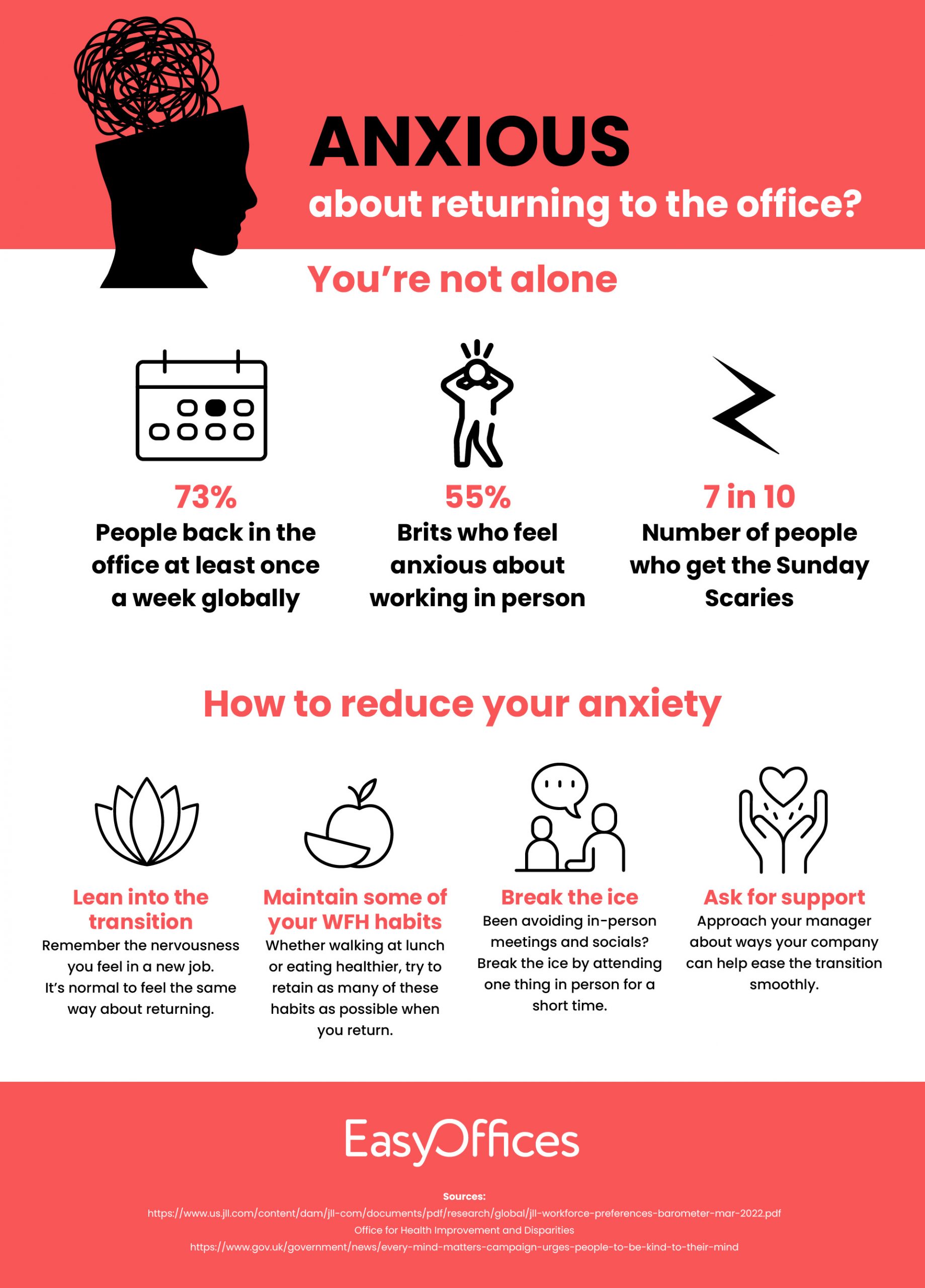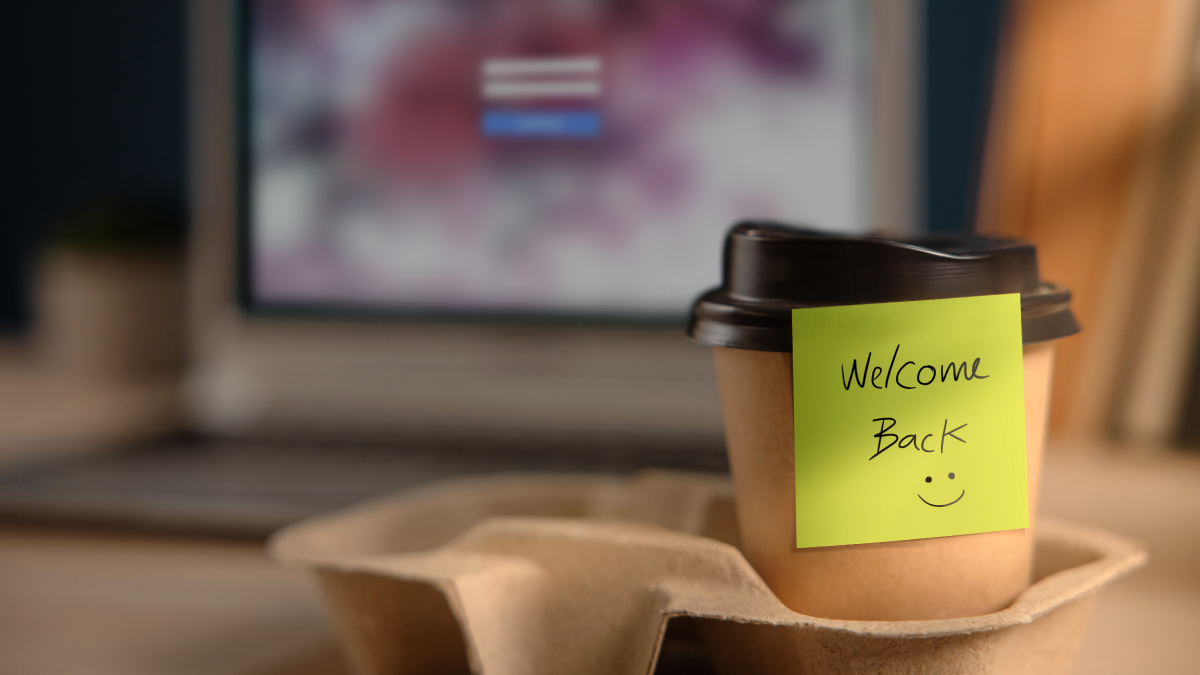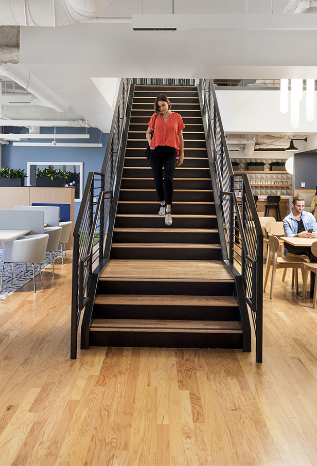Most companies have asked teams to spend a few days in the office per week, but if the thought fills you with anxiety, resistance and existential dread, it’s time to ask for a bit more support!
Hybrid is the most popular way of working globally, which means by now, you’ve probably been asked to go into the office more often. Worldwide, around 73% of people are already back in the office at least once a week, with other days spent working from home or in a third location like a coworking space.
Although it makes sense from a business perspective to encourage more face time and in-person collaboration between teams, this shift back to office life is a source of anxiety for more people than you think.
In the UK, research by the Office for Health Improvement and Disparities found that 53% of people feel anxious about working in person, against just 6% who feel nervous about working from home.
If you’ve worked in an office for most of your career, you may wonder why something so familiar fills you with dread. For some, the feeling has a name – the Sunday Scaries.

What is the Sunday Scaries?
Also known as the Sunday Blues, the Sunday Scaries is a feeling of dread, nervousness and anxiety that typically surges on a Sunday evening as the work week looms.
Government research just revealed that 7 in 10 Brits experience the Sunday Scaries regularly, with work stress and to-do lists the primary triggers as the weekend concludes.
Last year, Google searches for ‘Sunday Scaries’ increased by 100% when we started going back into the office.
Since the start of 2022:
In the UK alone, more than 80,000 people ask questions about office anxiety a month, with common Google searches like ‘how to deal with back-to-work anxiety’ spiking throughout the month.
Why are we anxious about working in person?
- A change in routine: Routines help us cope with change, and for the last few years, we’ve been adjusting to the new cadence of working from home, and life has become somewhat predictable. Studies have shown that working from home can increase productivity and positively impact work-life balance, so naturally, the idea of another routine shift is stressful.
RELATED: How to create a workplace that prioritises work-life balance
- Social anxiety: During the pandemic and subsequent lockdowns, the World Health Organisation reported a 25% increase in anxiety globally, which means more people are dealing with feelings of social nervousness than before. Today, 1 in every 10 people suffers from social anxiety.
- Return-to-office exhaustion: At the end of last year, 71% of people globally working in person reported being emotionally exhausted. In comparison, 84% of people working in a hybrid setting said the same. The transition from online meetings and Zoom chats to in-person conversations and situations can be physically and emotionally draining as we spend more time in the office.

How to ease anxiety about working in the office
- Lean into the transition: Remember the nervousness you feel in a new job. It’s normal to feel the same way about returning to the office, even if you’ve been at the company for years. Give yourself time to adjust to the stressful new routine change, new ways of working, and interactions you’ll be having.
- Maintain some of your WFH habits: Environments can greatly impact our behaviour, and you may have developed some good habits working from home. Whether going for a walk at lunch or leaving your desk a few times a day to move around and give your eyes a break, try to retain as many of these habits as possible when you return to the office.
- Break the ice: If you’ve been avoiding in-person meetings and social gatherings at work, break the ice by planning to attend something in person, even if it’s for a short time. You might find your anxiety and worries about social interactions are worse in your head than reality.
- Ask for support: Whether you need flexible working hours, mental health support or someone to talk to, approach your manager about ways your company can help ease the transition smoothly.
Find an office close to home
Many people work in coworking spaces closer to home, which means all the perks of office life with less commuting. Find a flexible space anywhere in the world and see how good office life can be.

